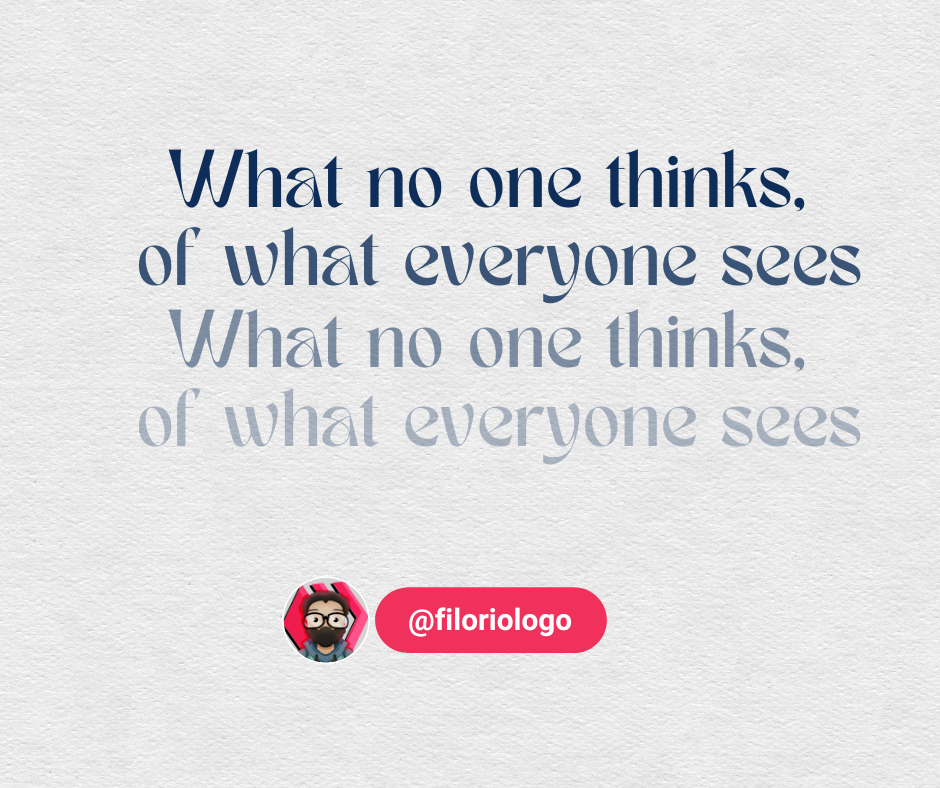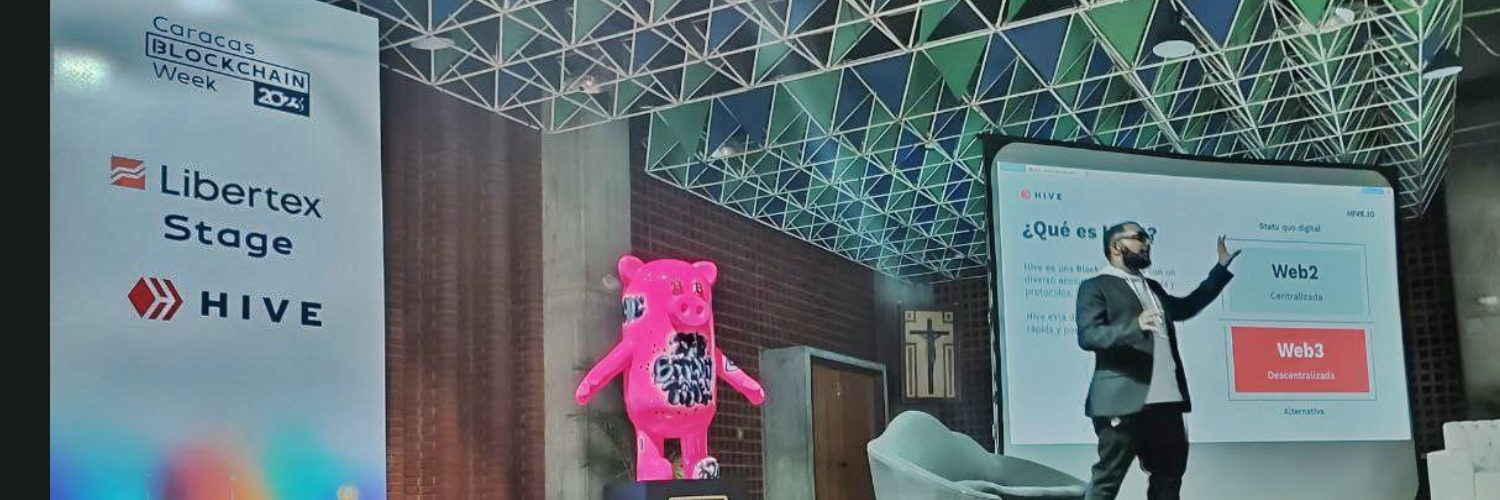Filosófico es develar lo oculto
Si hay algo que disfruto de la filosofía es su intento por develar lo oculto sobre eso que todos ven. Día con día vivimos en medio de una sociedad que está repleta de estímulos, imagenes, discursos y datos, en la que todo parece estar ahí al alcance de todos, a simple vista. Pero, pienso que lo más difícil de todo esto es poder ver realmente lo que tenemos frente a nosotros. Hay elementos que están a simple vista y pasan totalmente desapercibidos. Por eso siento que la frase de "lo que nadie piensa de lo que todos ven" nos muestra una interesante paradoja, puesto que lo más evidente suele ser por lo general lo que está más a salvo de caer en cuestionamientos. En resumeen, se trata de repensar lo obvio.

Siempre he pensado que el sentido común es el menos común entre todos los sentidos, pues precisamente eso que damos por sentado es el recurso del sistema por decirlo de algún modo que dictamina cierto orden social, aunque este no sea natural, creo que es el producto de mecanismos historico-políticos que con el pasar del tiempo se han venido normalizando. Esto hace que vengan a mi mente muchas frases, por ejemplo:
"El pobre es pobre porque quiere, porque no se esfuerza" es una frase que nace del mito de la meritocrácia. Si alguna vez estimado lector, como yo te has inclinado a si sea por simple curiosidad al idealismo neoliberal, seguramente has escuchado la frase "El mercado se regula solo". En fin, son solo un par de frases que invitan a hacernos la siguiente pregunta: ¿Las cosas son así realmente? En el quehacer filosofico en su actividad por develar lo oculto, es precisamente pararse frente a frases que damos por aceptadas o normadas y pregutarnos ¿realmente las cosas son así?
El Habitus nos hace percibir las cosas como algo incuestionables y es tarea de la filosofia y el pensamiento crítico el desmenuzar las ideas, y sobre todo desautomatizar la percepción. Siempre con una pregunta disponible: ¿Por qué? Por qué esto o aquello se considera algo normal, y en este punto debo confesar que no hay palabra que me genere más incomodidad que la palabra normal o normalidad.
Este artículo nace como una invitación a pensar lo que nadie piensa de lo que todos ven, es decir, que hay de particular en algo muy común. Por ejemplo, es poderosamente aceptado y común la idea de las tres comidas al día, el desayuno, el almuerzo y la cena, ahora bien, te has preguntado ¿siempre ha sido así? realmente no, las cosas no son estáticas, como vivimos hoy no es nada comparable con lo que ocurrió hace 100 años. Por lo que siempre es importante cuestionar lo dado.
En este punto viene a mi mente Michel Foucault que dedico mucho a cuestionar las estructuras del poder, ahora bien, desde su perspectiva pienso que los regimenes sociales son una propuesta de verdad, es decir, limites que dictan que se puede o no se puede hacer, lo que puede ser dicho o no, lo visible en este sentido pasa exactamente igual, pues, eso que decimos "visible" remite a lo que el poder permite sea visible. Por lo que intentar dilucidar lo que está más allá de lo visible es un acto de rebeldía.
Así que es momento de ser rebeldes y comenzar a pensar diferente, pensar desde otro angulo, desde un punto de vista que no sea tan "común". Ciertamente todos vemos las mismas estructuras, pero, es importante pensar diferente de lo que todos ven.
¡Si llegasta hasta aquí gracias por leer!
Nos vemos en los comentarios!!!

ENGLISH VERSION (click aquí!)
What no one thinks, of what everyone sees
Philosophical is to unveil the unseen
If there is something I enjoy about philosophy is its attempt to unveil the hidden about what everyone sees. Day by day we live in the midst of a society that is full of stimuli, images, speeches and data, in which everything seems to be there within everyone's reach, at a glance. But, I think that the most difficult part of all this is to be able to really see what we have in front of us. There are elements that are in plain sight and go totally unnoticed. That's why I feel that the phrase “what no one thinks of what everyone sees” shows us an interesting paradox, since the most obvious is usually what is safest from being questioned. In short, it is a matter of rethinking the obvious.

I have always thought that common sense is the least common among all the senses, because precisely that which we take for granted is the resource of the system, so to speak, that dictates a certain social order, although this is not natural, I think it is the product of historico-political mechanisms that over time have been normalized. This brings to my mind many phrases, for example:
"The poor are poor because they want to be, because they do not make an effort ” is a phrase born of the myth of meritocracy. If at any time, dear reader, like me, you have been inclined to neoliberal idealism, even if just out of curiosity, you have surely heard the phrase “The market regulates itself”. Anyway, these are just a couple of phrases that invite us to ask ourselves the following question: Are things really like that? In the philosophical endeavor in its activity to unveil the hidden, it is precisely to stand in front of phrases that we take for accepted or standardized and ask ourselves: Are things really like that?
Habitus makes us perceive things as something unquestionable and it is the task of philosophy and critical thinking to break down ideas, and above all to de-automatize perception. Always with a question available: Why? Why this or that is considered normal, and at this point I must confess that there is no word that makes me more uncomfortable than the word normal or normality.
This article is born as an invitation to think what nobody thinks about what everybody sees, that is to say, what is special about something very common. For example, it is powerfully accepted and common the idea of three meals a day, breakfast, lunch and dinner, now, have you ever wondered if it has always been like this? not really, things are not static, as we live today is nothing comparable to what happened 100 years ago. So it is always important to question the given.
At this point comes to my mind Michel Foucault who dedicated a lot to question the structures of power, now, from his perspective I think that social regimes are a proposal of truth, that is, limits that dictate what can or cannot be done, what can or cannot be said, the visible in this sense is exactly the same, because what we say “visible” refers to what power allows to be visible. So trying to elucidate what is beyond the visible is an act of rebellion.
So it is time to be rebellious and begin to think differently, to think from another angle, from a point of view that is not so “common”. Certainly we all see the same structures, but it is important to think differently from what everyone sees.
*If you made it this far, thanks for reading!
See you in the comments!!!
Translated with DeepL.com (free version)
Si deseas apoyar mi trabajo acá puedes enviar un tip
If you wish to support my work here you can send a tip.
HIVE/HBD: filoriologo
LEO: filoriologo
Bitcoin Lightning Network: fretfulcoffee45@walletofsatoshi.com
Bitcoin: 1Sarz4FYPMDGmEUL8DsAQYHKZSVazAaFk
USDT(TRC20): TFa11YSZ77XPH56XiSqseHLms6LAzjcAkv
BINANCE ID: 4072493

| X | Instagram | Medium |Telegram | LinkedIn | INLEO |
Posted Using INLEO